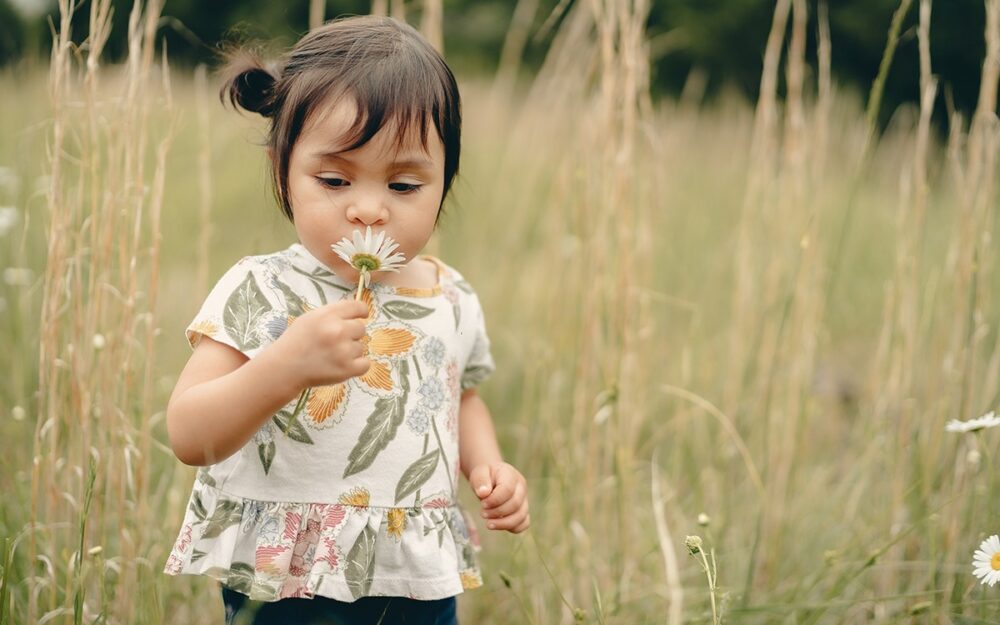
From the hunger strikes of the Sunrise movement to Greta Thunberg’s journey by sailboat across the Atlantic Ocean, Generation Z has demonstrated its commitment to bold action on climate change and is demanding that older leaders follow suit. But who is growing up in their wake?
Generation Alpha, children under 13, are on track to be the generation least connected to nature, and their mental health is in crisis. Trust for Learning, an equity-focused philanthropic partnership supporting children’s development from birth to age eight, is working to reconnect children to nature to support their mental health, development, and relationship with the natural world. In our latest report, we highlight publicly-funded, nature-based early learning programs around the U.S. and argue that every child should have access to programs like these.
Generation Alpha, children under 13, are on track to be the generation least connected to nature, and their mental health is in crisis.
Generation Alpha’s Disconnection from Nature
We can make transformative, low-cost investments that nurture and entire generation’s relationship to the earth.
Generation Alpha — our babies, toddlers, and young children — are true digital natives coming of age in an increasingly stressful world. While they may not yet be reading the headlines, children feel and are impacted by their families’ and educators’ stress, whether caused by systemic racism, climate anxiety, challenges to democracy, gun violence, or a global pandemic. Beyond today’s stressors, we know this generation will grow up in a world informed by AI, virtual reality, and new forms of social media we can’t yet envision.
Those of us in early childhood philanthropy are paying close attention to the state of young children and the world they are inheriting, and climate and conservation funders may want to follow suit. If philanthropists connect across our own siloes, we can make transformative, low-cost investments that nurture an entire generation’s relationship to the earth while supporting their mental health and cognitive development.
The Benefits of Nature-Based Early Learning Environments
From making mud pies in the backyard to watering sprouts in the classroom window, from hiking trails to playing outside, from urban to rural, and across all income brackets, outdoor learning environments facilitate joy and development for young children. Nature-based learning on any scale fosters environmental stewardship and can be used by teachers and parents alike to encourage interest outside the classroom. These learning environments not only help reconnect children to nature but also help reconnect communities to their ecosystems and strengthen young children’s relationships with peers and educators. Relationships are a key ingredient of ideal learning environments for young children, and time in nature brings us together as we explore, play, and rest.
What if we believed that being in a relationship with nature is a human birthright? How would that change our actions and our philanthropic investments?
These formative early years influence whether each of us experiences nature as a distant, abstract concept or as an indispensable part of our lived reality. Until very recently, all human beings evolved and developed in close relationship with nature. Naturally, reconnecting with the earth supports us on every level—from cognitive development to socio–emotional well-being. What if we believed that being in a relationship with nature is a human birthright? How would that change our actions and our philanthropic investments?
Although the benefits of nature to young children are so clear, children and families experience unjust disparities in their access to safe green spaces near their homes and schools. As funders, we must acknowledge that the present disconnection of young children from nature is the result of genocide, displacement, red-lining, and other intentional policies and acts that have unfolded over generations. Philanthropists’ approach to repairing this harm should therefore be generational and reparative. We may not be able to predict how our investments will take root, but philanthropists can support all children’s wellbeing in the near term while catalyzing future waves of environmental leadership that are inclusive of all communities.
Fortunately, funders interested in this generational approach will find fertile ground to support all over the country. Trust for Learning’s new report spotlights programs around the U.S. that are expanding access to nature-based learning environments for all children — and they need investment to take root, grow, and cross-pollinate. Local community foundations can help by sponsoring field trips or helping existing programs build their capacity. Family foundations can invest in accessible public spaces like community gardens and public playgrounds and support schools to partner with gardens, museums, and aquariums, building on existing community resources. At the Trust, we take a national policy approach, advocating for equitable, play-based ideal learning environments that include nature as an essential component for all children in publicly funded programs, from child care to Head Start to public Pre-K to elementary school. Public investment in outdoor learning programs is essential, and there is growing momentum, with five states introducing legislation to expand these programs in the last five years.
Sign up for our free newsletters
Subscribe to NPQ's newsletters to have our top stories delivered directly to your inbox.
By signing up, you agree to our privacy policy and terms of use, and to receive messages from NPQ and our partners.
Current Momentum in the Aftermath of COVID19
This surge of momentum may be a silver lining of the pandemic. As early childhood programs scrambled to make learning environments safe and accessible to children and families during the height of COVID-19, those with access to existing outdoor learning spaces rapidly adapted—turning into nature preschools nearly overnight. We can assume that children with a fair amount of privilege prior to the pandemic were more likely to have access to nature-based learning environments during COVID-19 than their less-advantaged peers. On the other hand, children without access to premier early childhood programs before COVID-19 may have spent more time out of their usual learning environment, contributing to learning loss.
The Natural Start Alliance tracks the expansion of nature preschools in the U.S., and has documented dramatic growth since the beginning of the pandemic. Nature-based preschools have increased by more than 200% since 2017. However, racial demographics of nature-based early learning programs remain largely stagnant, with White children continuing to disproportionately enjoy these rich, developmentally nurturing programs compared to Black and Hispanic children. Funders can acknowledge these challenges and disparities, learning from the wisdom of those outdoor programs around the country that did adapt and the many early childhood programs that have an explicit mission of leveling the playing field for all young children, like those Trust for Learning works with in the Ideal Learning Roundtable.
Philanthropists would be wise to start investing in our youngest children as stewards of the natural world they are inheriting, both because we will need their energy and creativity in the long fight for climate justice, and because nature heals, restores, and reconnects us across generations.










